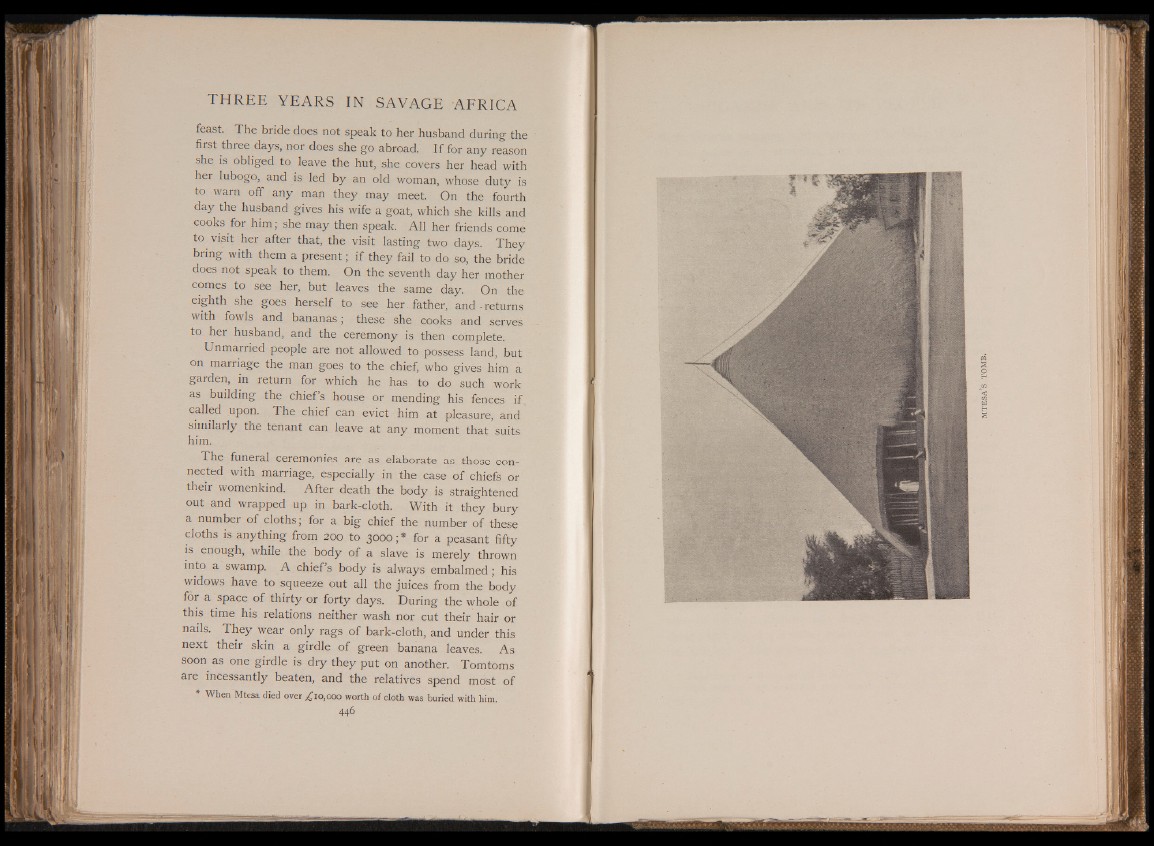
feast. The bride does not speak to her husband during the
first three days, nor does she go abroad. If for any reason
she is obliged to leave the hut, she covers her head with
her lubogo, and is led by an old woman, whose duty is
to warn off any man they may meet. On the fourth
day the husband gives his wife a goat, which she kills and
cooks for him; she may then speak. All her friends come
to visit her after that, the visit lasting two days. They
bring with them a present; if they fail to do so, the bride
does not speak to them. On the seventh day her mother
comes to see her, but leaves the same day. On the
eighth she goes herself to see her father, and-returns
with fowls and bananas; these she cooks and serves
to her husband, and the ceremony is then complete.
Unmarried people are not allowed to possess land, but
on marriage the man goes to the chief, who gives him a
garden, in return for which he has to do such work
as building the chief’s house or mending his fences if
called upon. The chief can evict him at pleasure, and
similarly the tenant can leave at any moment that suits
him.
The funeral ceremonies are as elaborate as those connected
with marriage, especially in the case of chiefs or
their womenkind. After death the body is straightened
out and wrapped up in bark-cloth. With it they bury
a number of cloths; for a big chief the number of these
cloths is anything from 200 to 3000;* for a peasant fifty
is enough, while the body of a slave is merely thrown
into a swamp. A chief’s body is always embalmed; his
widows have to squeeze out all the juices from the body
for a space of thirty or forty days. During the whole of
this time his relations neither wash nor cut their hair or
nails. They wear only rags of bark-cloth, and under this
next their skin a girdle of green banana leaves. As
soon as one girdle is dry they put on another. Tomtoms
are incessantly beaten, and the relatives spend most of
* When Mtesa died over ¿10,000 worth of cloth was buried with him.
446